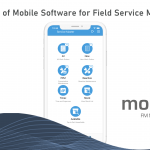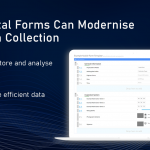Why Your Business Should Leave Spreadsheets in the Past
For many teams and companies, spreadsheets are a go-to tool. They can be used to complete several important tasks such as collating and streamlining information, organising plans, tracking completed work, and balancing the books. As well as this, they play an essential role in many businesses, bridging the gap between paper-based and automated processes in a way that can easily be adopted by non-technical staff.
However, relying entirely on spreadsheets could be letting your business down, and here’s why:
Data is Not Always Shared Properly
When spreadsheets, particularly in software packages like Excel, are fully utilised, it can be an extremely powerful tool. It can be used to process large datasets and collate, compute, predict, and tally information in ways that a human simply can’t.
However, too many people are happy to let the formulas do their thing, save the file, tuck it away into a digital folder, and move on to the next job without properly using or sharing their results.
If this data is merely saved and forgotten about, what was the point in collecting and processing it in the first place? When explored properly, data can provide you with valuable insights into your organisation’s performance. Without sharing these findings, your business will not be able to improve and grow, so it will eventually stagnate.
Spreadsheets Are Holding Your Business Back
In recent years, technology has been rapidly evolving. Companies across the world are adopting emerging technologies to gain a competitive advantage and streamline their processes. It is essential that businesses invest in new tools that will help them keep up with the changing world. This is no different in the facilities, asset and maintenance management industries.
Over the years, you may have prioritised growing your business over updating your processes and systems. However, now that you have a bigger team spread over a larger area, with staff spending time chasing paperwork and inputting data, you may notice the inefficiencies of these outdated ways of doing things. It’s likely that your staff are going through the motions without really assessing any of the information they’re collecting.
Don’t let your business fall behind – invest in updating your processes to save time and money.
Spreadsheets Increase Risk of Compromised Data Integrity
Spreadsheets are massively prone to human error; on average, a spreadsheet contains one error for every twenty cells that contain data.
When data is transferred to a spreadsheet from paper, there is always a risk that mistakes will be made, no matter how careful or experienced an employee is. Often, multiple people are responsible for inputting data into the same spreadsheet. Then, the complete dataset is passed on to yet another person to process and assess. With data passing through so many pairs of hands, information can easily be confused, forgotten, or lost.
Manual vs Automated Processes
Considering the many disadvantages that come with manually handling information, it must be asked: why stick to time-consuming and ineffective manual processes when data can be efficiently collected, validated and even analysed by a single, digital system? This way, rather than committing hours and weeks to the process, businesses can compile, access, and share their data at the touch of a button. Not only can this increase the efficiency and accuracy of your data handling, but it can also help dramatically reduce your administrative costs.
Leave Spreadsheets in the Past
In summary, spreadsheets have their uses but, as businesses grow, their limitations become more and more apparent. When feeding data from multiple sources, it’s far more efficient to collate this data into a single source of truth which is easily accessible. Improve data visibility and support the strategic goal of achieving the golden thread of property information.
Having worked in the facilities management industry for many years, we have seen first hand how the implementation of digital systems can reduce costs and improve data quality, transforming businesses worldwide.
If you’re interested in leaving outdated processes behind and want to see how our system can help streamline your data, call our team on 0203 411 1795 or email us at [email protected] for more details. Call us or use our website to schedule an online 1 to 1 demonstration of our system.



 Mobiess Ltd
Mobiess Ltd Mobiess Ltd
Mobiess Ltd